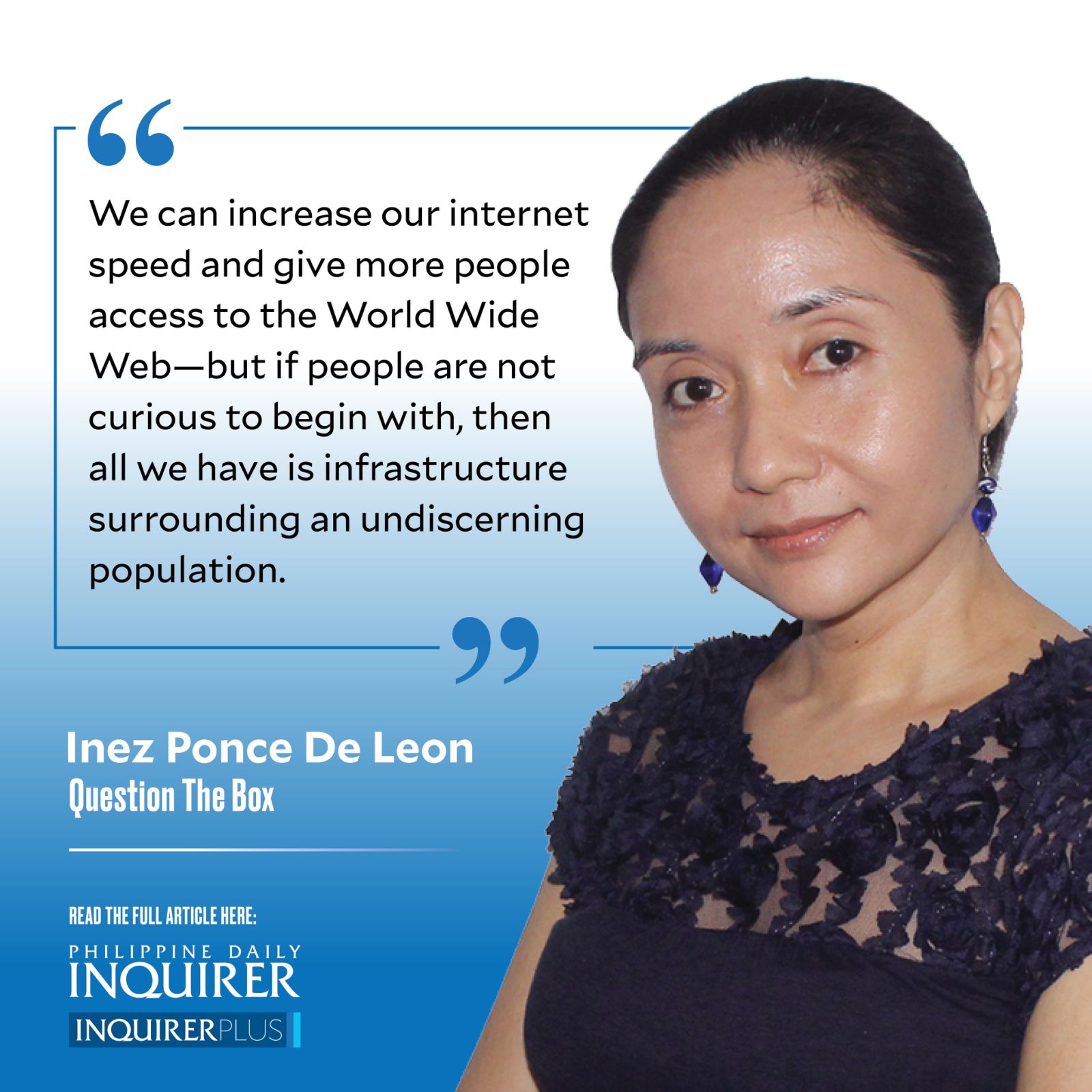Cultural roadblocks to full STEAM ahead

The STEM/STEAM (science, technology, engineering, agriculture, and mathematics) acronym has been thrown around rather liberally during recent debates, as some presidential candidates propose increases in research funding. This is good, as long as the candidates know that science covers the bench, theoretical, and social sciences; that we have to develop research in all fields; and we need to create an enabling environment for this research to flourish.
The enabling environment is often equated with a science culture. Some people interpret this as “knowing the facts” and then parroting them back in record time. This shortchanges the nature of science. However, scientific work is always long-term; the best scientists always take time to respond to an issue, whether they are asked about research findings or their favorite book. Scientific habits include appreciating facts in context, knowing which experts to consult, knowing where to look for information.
To gain insight into the culture of science, we turn to Robert Merton’s norms of modern science. Though introduced in 1942, these norms are still used today to describe scientific work. They are, traditionally, put together in the acronym CUDOs.
Communalism or Communism describes how research findings must be public knowledge. Universalism states that all findings are up for scrutiny, regardless of the identity and background of the scientist; this implies that any scientist is up for criticism, regardless of their rank, age, or gender, as long as the criticism is based on empirical data as well. Disinterestedness presumes that all scientists work for the good of humanity, rather than their personal gain. Organized skepticism stipulates that all scientists are, by default, skeptical of new findings, and will always cross-check, triangulate, and replicate before accepting new information as true.
Can we have such a culture?
Can we have Communalism, when many of our leaders take pride in keeping their lives secret, and then get angry when they are caught breaking the law? Their rabid followers then attack those who point out the faults and insult those who expose the truth.
Can we have Universalism, when we are so preoccupied with bestowing respect based on age alone? Young protesters are told to keep quiet. Students are berated for asking too many questions. Children are told not to speak against their elders, even when those same elders are hanging on to unprincipled, even misogynistic views.
Can we have Disinterestedness? The norm implies that we can take nothing personally. And yet, we are so obsessed with ranks and titles, that we use them as armor against criticism, even when the criticism is based on evidence. Dr. Randy David sees it as political privilege superseding the law of the state, and a persistent remnant of our feudal past. I extend this reasoning to include the propensity of some voters to choose leaders based on their appearance and “nostalgia,” rather than their actual platform, character, and track record.
Can we have Organized Skepticism? This is so hard to dream about when people believe in TikTok but do not cross-check what they hear about with more trustworthy sources, even when they have access to these sources. This is so hard to imagine when people disregard the experiences of those who suffered during martial law, even when so much evidence has shown that it was not the country’s “golden age.” This is so hard to envision when people favor gossip over asking questions, accept everything they read online without asking if it is true, share and propagate fake news, and then defend the lies that they spread.
Our culture doesn’t welcome scientists and researchers. We have children who are afraid to be curious, adults who swallow propaganda, older adults whose intellectual and emotional capacities are wasted on spewing conspiracy theories.
We can increase our internet speed and give more people access to the World Wide Web—but if people are not curious, to begin with, then all we have is infrastructure surrounding an undiscerning population.
We can throw all the funding we want at STEM/STEAM—but this cannot guarantee us an environment that values research, sustains it, and encourages the growth and education of thinkers.
Money cannot buy us a change in culture.
—————-
iponcedeleon@ateneo.edu




















